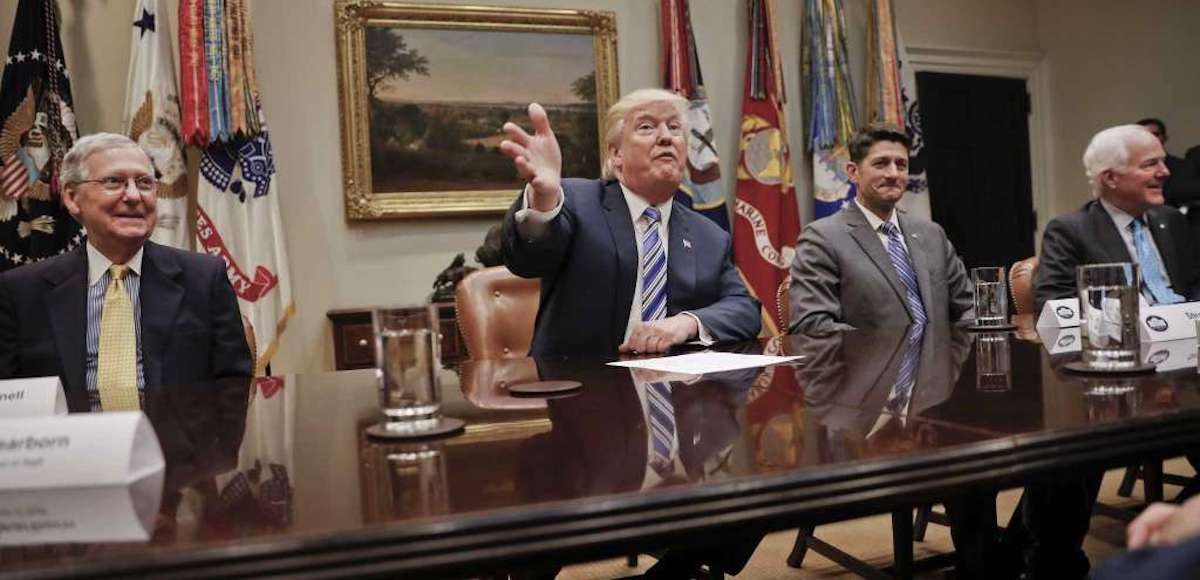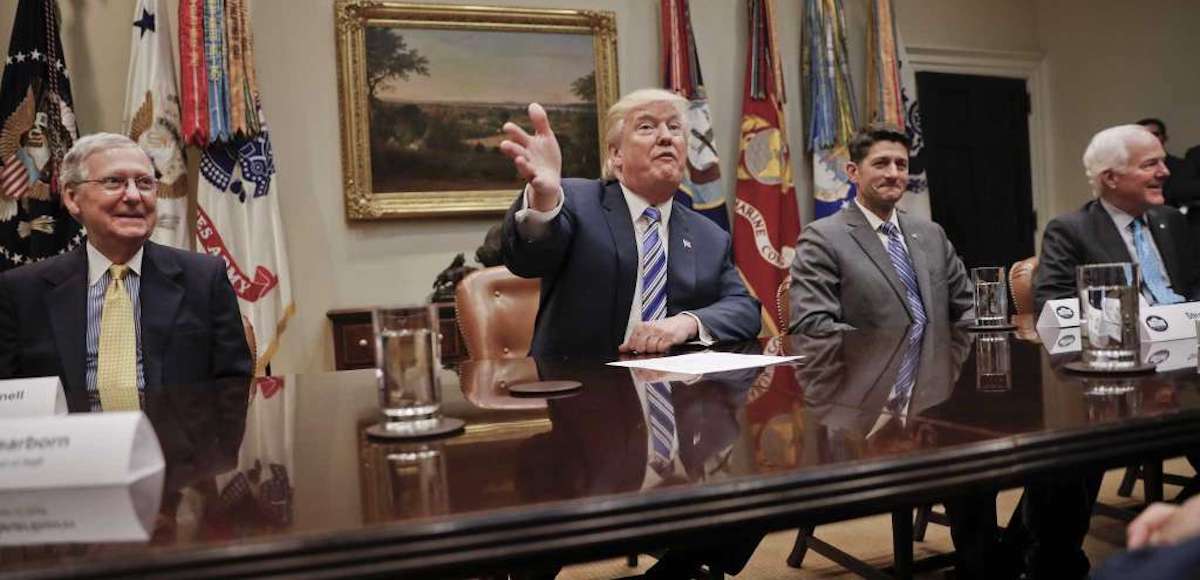

President Donald Trump, center, gestures during a meeting with House and Senate Leadership in the Roosevelt Room of the White House in Washington, Tuesday, June 6, 2017. With Trump are from left, Senate Majority Leader Mitch McConnell of Ky., House Speaker Paul Ryan of Wis., and Senate Majority Whip John Cornyn of Texas. (Photo: AP)
It’s not easy being a libertarian in the policy world of Washington. I view the flat tax as a timid intermediate step, with the real goal being a tiny federal government — like the Founding Fathers envisioned — that can be financed without any broad-based tax.
Yet even my timid intermediate step is considered radical and impractical by D.C. standards. There’s no discussion of fundamental tax reform. Instead, the debate revolves around whether we can reduce a couple of tax rates in one part of the code and “pay for” those changes by altering some provisions in another part of the code.
This is very frustrating, which is why I joked with Neil Cavuto that we could kill two birds with one stone by trading Trump, Hillary, Manafort, and Podesta to Russia in exchange for that country’s 13 percent flat tax.
But I want to address a couple of serious points in the interview.
- First, it would be very good for long-run growth if the tax system created a level playing field between housing and business investment.
- Second, Republicans would have a lot more flexibility to produce a very popular tax reform plan if they had imposed some spending restraint.
- Third, because it is vitally important to reduce the corporate tax rate, even a curmudgeon like me will accept half a loaf (or less, ugh).
To conclude, most people assume that something will pass simply because GOPers desperately need some sort of victory to compensate for their failure to repeal (or even just tinker with) Obamacare.
That’s true, but that doesn’t change the fact that any bill can be defeated if Democrats are unified in opposition and a small handful of Republicans decide to vote no.
By the way, I’m not completely unsympathetic to some of the Republicans who are wavering on whether to vote for a reform bill. Consider their predicament: If there’s a bill that cuts the corporate tax rate and gets rid of the deduction for state and local income taxes (to my chagrin, I’m assuming property taxes will still be deductible), that will be a net plus for the economy. But, depending on other provisions in the legislation, it may mean that a non-trivial number of voters (especially from high-tax states) will be hit with a tax increase.
Members of Congress who want good policy can explain to those voters that the economy will grow faster. They can tell those voters that their state politicians now will be more likely to reduce state income tax burdens. I think those assertions are true, but voters looking at higher tax burdens probably won’t care about those long-run effects.






